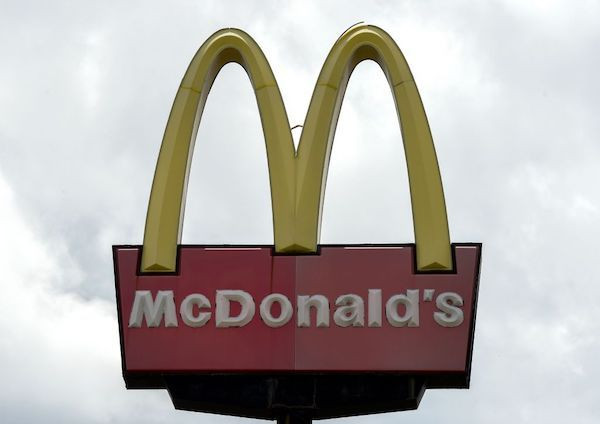Recent Acquisitions Could Give McDonald's A Technological Edge

Famed venture capitalist Marc Andreessen commented that "software is eating the world." He was referring to how technology has made its way into all aspects of the physical world. In the case of McDonald's (NYSE:MCD), software is literally helping customers eat more.
In recognition of the need to stay on the cutting edge, McDonald's recently acquired two tech companies that use predictive analytics and mobile software to improve the customer experience. These acquisitions will help the company stay competitive in a world where tech-enabled concepts like GrubHub and Uber Eats are making headway in the market for the American consumer.
Investing in dynamic menus
The first move McDonald's made was to acquire Dynamic Yield -- the $300 million transaction was announced late last month.
Dynamic Yield is a "personalization and decision logic technology" company. In essence, McDonald's has been using Dynamic Yield's technology to improve the way its digital menu boards appear to customers. At first glance, Dynamic Yield seems to provide a pretty narrow technology use case, but in fact, it helps influence customer behavior, which can have a profound impact on McDonald's sales and profitability.
The software personalizes the way a menu appears to a customer based on several factors, including the time of day, weather, popular items, and the customer's history of purchases. For example, on a cold day, the menu may show off hot drinks more prominently than it would otherwise. Or if a restaurant's kitchen is busy, the menu can show items that may be quicker to produce, helping improve efficiency and minimize wait times.
McDonald's isn't taking a leap of faith on the technology. It has been testing Dynamic Yield in select stores for the past year. Once the acquisition is complete, the technology will be rolled out to drive-thru windows and digital kiosks inside stores across the United States.
Investing in mobile
The second move was to establish a strategic partnership with mobile software company Plexure earlier this month.
Plexure already powers McDonald's mobile app in 48 countries outside the U.S. The new agreement gives McDonald's a 9.9% stake in Plexure and the exclusive right to use the technology in the quick-service restaurant setting. In exchange, McDonald's is paying the company approximately $3.7 million and offering Plexure greater access to its technology back-end and customer data.
Plexure is not just a software provider hosting mobile apps -- it's a customer engagement platform that uses digital marketing tools to increase sales. The software sends promotional offers, facilitates mobile ordering, and manages a customer loyalty program, in addition to serving as the basic technology backbone of the mobile app.
Plexure marks yet another way McDonald's is using technology and data analytics to personalize the customer experience. McDonald's is clearly anticipating a need to modernize its offerings based on the tools available and what the competition is doing.
The connected restaurant
In recent years, McDonald's has made several strides to upgrade its restaurants, including the development of the McDonald's mobile app, digital menu boards, and self-ordering kiosks. Because the company is so massive with nearly 38,000 locations in more than 100 countries, the technologies mostly operate independently of each other. However, as the company leans more into the usage of big data and predictive analytics, expect it to slowly unify its suite of services so it can more effectively leverage the data it collects at the restaurant level and translate that into a better dining experience.
After all, quick-service restaurant space is even more crowded as newer entrants such as Grubhub and Uber Eats expand their position in the market and give consumers more options. Preexisting rivals like Burger King and Wendy's won't stay idle, either. The good news is that management appears to be proactively shaping its strategy instead of letting the competition do it for them.
This article originally appeared in the Motley Fool.
Luis Sanchez has no position in any of the stocks mentioned. The Motley Fool has the following options: short October 2019 $82 calls on Restaurant Brands International. The Motley Fool recommends Grubhub. The Motley Fool has a disclosure policy.




















